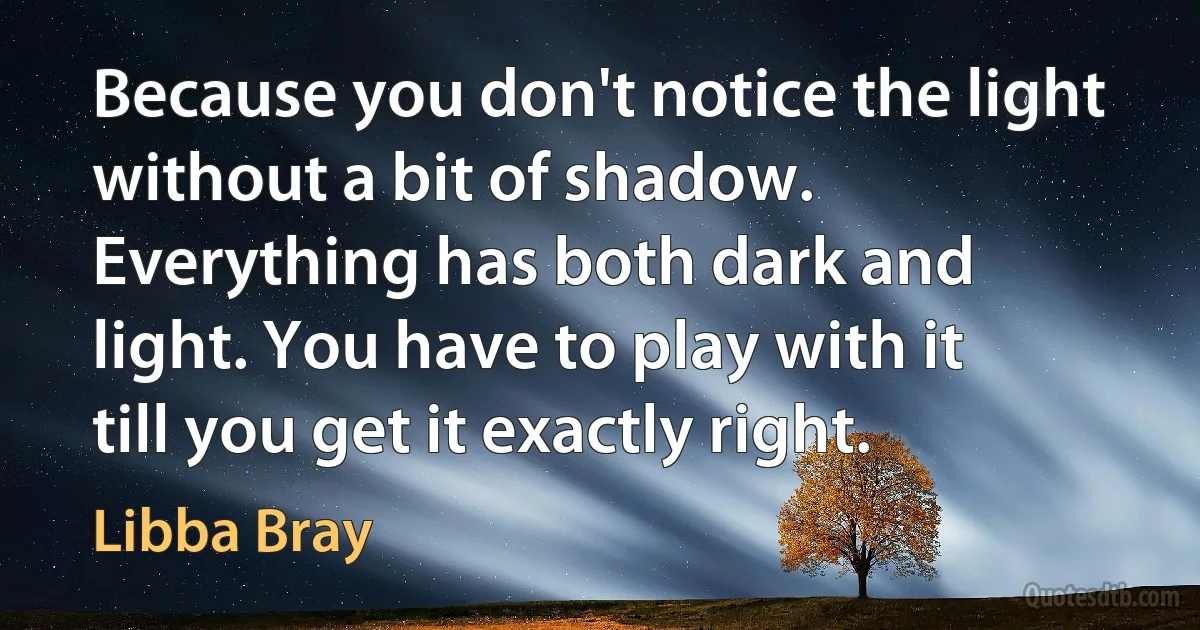Notice Quotes - page 36
There once was a Bald Man who sat down after work on a hot summer's day. A Fly came up and kept buzzing about his bald pate, and stinging him from time to time. The Man aimed a blow at his little enemy, but - whack - his palm come on his own head instead again the Fly tormented him, but this time the Man was wiser and said ''YOU WILL ONLY INJURE YOURSELF IF YOU TAKE NOTICE OF DISPICABLE ENEMIES.''

Aesop
Bryan, at his best, was simply a magnificent job-seeker. The issues that he bawled about usually meant nothing to him. He was ready to abandon them whenever he could make votes by doing so, and to take up new ones at a moment's notice. For years he evaded Prohibition as dangerous; then he embraced it as profitable. At the Democratic National Convention last year he was on both sides, and distrusted by both. In his last great battle there was only a baleful and ridiculous malignancy. If he was pathetic, he was also disgusting.
Bryan was a vulgar and common man, a cad undiluted. He was ignorant, bigoted, self-seeking, blatant and dishonest.

H. L. Mencken
‘Calcutta, for me, was a particular idea of the modern city, and I found it in many forms, works, and genres. ... by ‘modernity' I have in mind something that was never new. True modernity was born with the aura of inherited decay and life. ... if you look at paintings and photographs, and see old films of the city, you notice that these walls and buildings were never new – that Calcutta was born to look more or less as I saw it as a child. I'm not referring here to an air of timelessness; the patina that gave to Calcutta's alleys, doorways, and houses their continuity and disposition is very different from the eternity that defines mausoleums and monuments. It's this quality I'm trying to get at when I speak of modernity. ... modernity in the nineteenth century is indistinguishable from nature; perhaps it is nature – in some ways, the culvert, which has emerged from the rock, seems more of its place than the mountain itself.' [citation needed].

Amit Chaudhuri
A man should learn to detect and watch that gleam of light which flashes across his mind from within, more than the lustre of the firmament of bards and sages. Yet he dismisses without notice his thought, because it is his. In every work of genius we recognize our own rejected thoughts: they come back to us with a certain alienated majesty.

Ralph Waldo Emerson
Regarding the doll in the Purge, since it's one of my favorite moments in the series: The Custodians are the physical embodiment of a very vaporous notion -- human conscience. Does conscience really exist, or is it just a way of convincing ourselves that a center for moral judgment resides within us, thus lending our judgments a natural authority? As always, Trevor prefers to provide a tangible solution. He can't tolerate uncertainty. Whether it is real or not, Trevor understands the usefulness of the belief in conscience as a tool for practical ends, the improvement of society. In the end, the doll which emerges from the Custodian reveals to us that Trevor's artificial conscience, like the classical notion, is no more than a flimsy gimmick, a parlor trick, a plaything of the mind powered by a circular process. (Advocating the existence of conscience usually involves an appeal to our conscience). Notice that Trevor himself winds up the toy while in the train earlier in the episode.

Peter Chung
I've experienced such extremes both in the band and in my personal life, feelings that last for just a few seconds at a time, that it's like a drug. After a while, when they're not there you notice the absence of it and nothing seems real anymore and nothings quite sharp enough or focused enough.

Robert Smith (musician)



